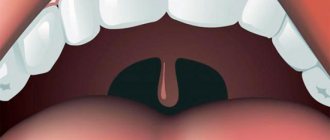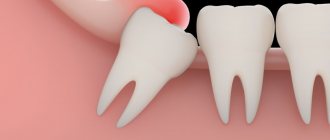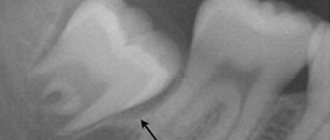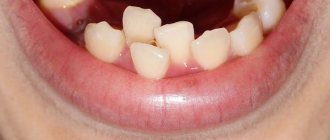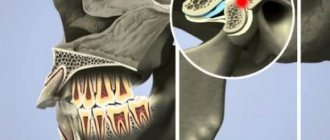Garlic odor from the mouth: proven ways to eliminate it
Bad breath causes anxiety and embarrassment. Because of it, there are difficulties in communicating with others. But Ukrainian cuisine offers a lot of temptations to which we succumb. And only then you have to think about how to eliminate the smell of garlic from your mouth. This is not so easy to do - it is persistent and can appear for several hours, or even days after consuming this product. But it happens that the smell occurs even if garlic was not in the diet. What is the reason? How to remove unpleasant manifestations? Let's get acquainted with the opinions of experts.
Methods of disposal
To avoid bad breath, it is recommended that immediately after consuming the product, rinse your mouth with mouthwash, herbal decoction, or brush your teeth. You can also consume milk. This is a product that will help neutralize unpleasant odors.
You can get rid of bad breath with the help of special sprays, lozenges, and lozenges. There are a large number of anti-odor products in the pharmacy chain; they can be used immediately after eating or when a problem is felt.
What explains the nature of garlicky breath?
To understand how to eliminate bad breath, you first need to understand the chemical processes in our body that occur when we eat garlic. This product owes its smell to allicin (ester). It is released by the mechanical destruction of garlic cells from the enzyme allinase it contains. During the digestion of the product, volatile sulfur compounds are released, which enter the bloodstream. Through it, these substances penetrate into the lungs, and from them into the larynx and mouth.
How long does the garlic smell last? The most persistent aroma comes from the product in its raw form. If no measures are taken, volatile substances are completely eliminated from the body within 72 hours. First, a characteristic taste is felt in the mouth and a persistent odor emanating from the inside. It weakens gradually. It can be felt not only through the air you exhale, but also through other body secretions, such as sweat.
How to deal with the problem quickly and effectively
To eliminate this symptom, it is recommended to irrigate the oral cavity using special sprays. This will help you in getting rid of trouble. Another effective way is suitable for everyone - crushed activated carbon, brush your teeth with it, or drink a few tablets once a day.
Another folk medicine is products that will help eliminate halitosis if dishes with garlic are consumed. These are mint leaves, parsley, dill, cardamom. It is important to clean the plaque on your tongue every day using a stiff brush.
Why does your breath smell like garlic even if you haven’t eaten it?
If a person has recently eaten garlic (as an independent product or as part of a meal), then the source of bad breath is clear. Otherwise, you need to find out the reason for its appearance.
Because sulfur compounds enter the bloodstream when garlic is digested, this may explain why newborn babies or patients being fed through a feeding tube may have bad breath. The air we exhale tells a lot not only about what we recently ate, but also about the disorders of our body. What diseases cause a garlic odor? The following pathologies can cause it:
- bacterial diseases of the oral cavity;
- pathological processes in the organs of the urinary system;
- chronic sinusitis;
- disorders of the gastrointestinal tract: gastritis, peptic ulcer;
- pathologies of the respiratory system;
- diseases of the endocrine system, in which other symptoms also appear: sudden changes in mood, irritability, increased fatigue.
The smell of garlic in a child often indicates poor oral hygiene or dental problems, so it is worth taking it to the doctor. Some choleretic drugs can also provoke the problem.
Why does a child smell?
In some cases, this symptom is felt from the child’s mouth. Why does children's breath smell like garlic? Halitosis from a child’s mouth most often occurs after consuming this product or after using medications containing garlic (for example, choleretic drugs).
This may also indicate that children do not maintain sufficient oral hygiene (do not clean the surface of the tongue from the accumulation of bacteria) or have dental diseases. To maintain normal child health, you should consult a doctor on time and take timely measures to treat children.
How to quickly get rid of bad breath after eating garlic
If your breath is stale and you will soon need to, for example, leave the house and take public transport, it is important to quickly neutralize the smell. How to interrupt him to feel comfortable? Experts recommend the following products for this:
- Parsley or dill. Fresh greens should be chewed slowly and thoroughly, without drinking any liquid. Flavoring substances will help eliminate bad breath.
- Walnuts or almonds. A handful is enough to neutralize allyl methyl sulfide, which is exhaled after eating garlic.
- Nutmeg. This spice is quite effective in combating bad breath.
- Fresh apple or mint. They contain many phenolic compounds that interact with sulfur and neutralize odor.
- Fresh citrus fruits. They help fix the problem for a short time.
What can you do to cover up the garlic smell if you don’t have anything on hand? Eat a piece of bread. Bakery products almost immediately start the process of oxidation of sulfur-containing esters, therefore reducing the intensity of bad breath.
Various drinks will also help solve the problem of how to remove the foul odor. This could be milk, green or mint tea, coffee, fenugreek infusion, etc.
Checking your breathing
To check your breathing, it is recommended to use simple tests using available tools:
- Wipe the surface of your tongue with a clean napkin and then smell it.
- Lick the skin on your wrist, when dry, sniff.
- Cup your palms, exhale and bring them to your nose.
To determine bad breath, doctors use a special device called a halimeter. It is used to determine the amount of sulfides during exhalation.
What else can you do to eliminate the smell of garlic from your mouth?
Particles of garlic and food to which this spice was added can get stuck between the teeth, which only increases the unpleasant odor. Therefore, you need to brush your teeth, and if this is not possible, then at least rinse your mouth. But you should understand that this method will only partially help, since the main source of the problem comes from within.
If the question is how to remove the garlic smell, it is recommended to use other products. Vegetables (potatoes, celery, eggplant, lettuce) and fruits (grapes, lemon, apricots, plums, etc.) cope well with the problem. You can also eat a teaspoon of hot mustard.
Gargling with herbal decoction
For diseases of the oral mucosa, rinsing with infusions and decoctions of medicinal herbs has long been used in folk medicine: along with their anti-inflammatory effect, they have a good deodorizing effect. Chamomile, sage, wild strawberry leaves, calendula, St. John's wort, and mint are especially suitable for these purposes. Usually the herb (separately or a mixture of several types) is brewed at the rate of 1 tablespoon per 1 glass of boiling water, infused, and squeezed. Half a glass of warm infusion is enough for one rinse. It is better to do this after eating and after you have first removed all food debris with a toothpick and then with a toothbrush with paste or powder.
Treatment of diseases that cause garlic odor
If a person does not eat garlic, but smells it on his breath, he should consult a doctor. This could be a family doctor who will refer you to the right specialist.
If you have problems with the gastrointestinal tract, you will need to consult a gastroenterologist. After the diagnosis, he will prescribe appropriate treatment. Antacids are prescribed to neutralize the acids that accumulate in the gastric juice. Such drugs as Maalox, Omez, Almagel are suitable. Sometimes you need to take antibiotics and painkillers. The patient must follow a diet that includes the exclusion of fried, smoked, and salty foods.
How to get rid of garlic odor caused by problems in the endocrine system? An endocrinologist may recommend moderate sports activities. It is also worth giving up bad habits. The patient is prescribed hormonal and herbal medications. A diet is prescribed taking into account the test results. It may include the consumption of iodine-containing, fermented milk products, cereals, raw vegetables and fruits.
In any case, one should not forget about careful oral hygiene using rinses and irrigators.
Reasons for appearance
Garlic taste in the mouth is a common problem for onion and garlic lovers. The specific aroma and taste of the plant is given by sulfurous substances that appear in the body under the influence of enzymes. Assimilated by the blood cells and lungs, these compounds are subsequently excreted from the body along with urine, sweat and breath. Food residues, supplemented by chemical processes in the body that absorb sulfur compounds into the blood, also take part in the formation of the garlic taste.
Getting rid of an unpleasant aftertaste quickly is quite difficult, since the body needs time to completely cleanse itself. Experts recommend preventing the appearance of garlic taste and bad breath with a glass of milk containing calcium, which repels and eliminates the unpleasant aftertaste. You can stop the aftertaste with menthol chewing gum or special sprays for fresh breath, used after thorough oral hygiene. It is also possible to correct the appearance of this symptom by consuming a variety of greens.
This taste, which appears after consuming a plant with a specific taste, is considered completely normal and disappears on its own within a few days. In addition to food, some pathological conditions can cause the appearance of garlic taste, including:
Arsenic poisoning
The chemical element, considered one of the strongest poisons for all mammals, is included in many pesticides and dyes, is used to create electrical conductors, and was previously widely used in dentistry, to kill the nerve during dental treatment.
In most cases, arsenic poisoning is unintentional, since the poison enters the body through the mouth, skin or during breathing, during technological or industrial accidents, but it can also be associated with an attempted suicide or improper storage of rodent poisons.
With a significant dose, toxic substances within half an hour provoke the appearance of:
- general weakness;
- smell and taste of garlic from the mouth;
- pain in the head and stomach;
- nausea, alternating with vomiting and frequent diarrhea;
- dehydration and dry mouth.
The heart rate also increases and blood pressure drops, leading to a deterioration in the general condition, up to the opening of gastric bleeding or falling into a coma.
Selenium overdose
Selenium in the human body plays a very important role as an antioxidant, protecting cells from the action of free radicals and participating in energy processes and metabolism. The average preventive dose of selenium for an adult is 80-2000 mcg, and if this amount is significantly exceeded, an overdose occurs, leading to nausea with vomiting, dizziness and the appearance of a garlicky taste and bad breath.
You can also be poisoned by selenium:
- in case of ingestion of hydrogen selenide through the respiratory system, which is possible during accidents in industrial premises;
- upon contact with selenium dust, which is part of various paints and glass, during the production of equipment.
An overdose of the mineral can also trigger the development of pneumonia.
Increased sweating
The taste of garlic, along with the corresponding odor from the mouth, can occur as a result of increased physical activity or visiting a bathhouse (sauna). Increased sweating in this case provokes the appearance of a sour garlic taste in men, and a sulfuric taste in women. Stability or disruption of hormonal levels will also have an additional impact. In this case, the garlic taste will also be accompanied by an unpleasant odor of sweat.
Poor oral hygiene
A garlic taste in the mouth can be caused by poor oral hygiene. Over time, bacteria from food mixes with plaque, causing an unpleasant and pungent odor, reminiscent of garlic and associated with the release of sulfurous substances. When small wounds or cracks appear in the gums, the taste of garlic is mixed with the smell of rotting, caused by the formation of purulent cavities and the development of caries.
Tartar deposits can also affect the taste, requiring medical cleaning and causing the accumulation and proliferation of bacteria.
Chronic sinusitis and sinusitis
Inflammation of the mucous membrane lining the inside of the paranasal sinuses is accompanied by the appearance of pus, which, when it enters the oral cavity, provokes a garlicky taste, accompanied by bad breath associated with the addition of a bacterial infection.
In addition to the garlic taste, the patient may also be bothered by:
- dizziness and headaches;
- nausea;
- nasal congestion.
The latter symptom also causes impaired salivation and drying out of the oral mucosa, leading to the development of bacterial infections with a putrid or garlicky odor.
Pregnancy or menopause
In early pregnancy, hormonal changes can trigger the appearance of dysgeusia, accompanied by a distortion of taste and the appearance of a garlicky or metallic taste in the mouth. Such symptoms can be disturbing and quite unpleasant, but are considered completely normal and disappear on their own after 2-3 weeks.
During menopause, changes in hormonal levels provoke not only changes in taste preferences, but also increased sweating. A decrease in estrogen and progesterone also leads to a garlicky taste in the mouth.
Gastrointestinal pathologies
The taste of garlic in the mouth is considered one of the common symptoms of disruption of the gastrointestinal tract, the development of gastritis or exacerbation of a stomach ulcer. The appearance of an unpleasant taste is caused by the aggressiveness of gastric juice due to an increase in the amount of hydrochloric acid or the activity of pathogenic bacteria.
In addition to the specific taste, patients with this pathology are also concerned about:
- pain in the upper abdomen;
- nausea after eating;
- sour belching;
- frequent diarrhea or, conversely, constipation.
The final answer can be obtained after gastroscopy.
Why do beans cause flatulence?
The gas-causing properties of legumes require no introduction. It is well known that consuming even a small portion of beans can have the most undesirable consequences. The reason is the chemical composition of beans and its metamorphosis in our intestines.
Beans contain a special type of sugar called oligosaccharides. It is a type of polysaccharide - molecules formed by long chains of saccharides or sugars. (Examples of monosaccharides are fructose, glucose and dextrose.)
The types of oligosaccharides most present in beans are raffinose and stachyose. These are very large molecules and are difficult to digest. The enzymes in our digestive system that are responsible for breaking down food cannot make it small enough to be absorbed through the walls of the small intestine. So, when you eat a serving of beans, they most likely end up in your large intestine without ever forming into a fine suspension.
When they reach the large intestine, they will encounter a huge number of bacteria inhabiting it, often referred to as intestinal flora. These bacteria successfully do the work that the digestive system cannot do and destroy any oligosaccharides that enter the colon.
When bacteria do their job, they produce a variety of gases, including carbon dioxide and hydrogen. This eventually leads to the formation of hydrogen sulfide (as well as methanethiol and dimethyl sulfide): an extremely foul-smelling chemical that can be found in human intestinal gas.
Beans are not the only vegetable that causes flatulence. Onions, garlic, cauliflower and Brussels sprouts are among many other vegetables that contain oligosaccharides or polysaccharides that our digestive system has problems with.
So how can this effect be reduced? One suggestion is to soak the beans before cooking. This method will not work with beans in tomato sauce, which is what you buy in cans. But with other beans, this technique will help destroy some of the oligosaccharides. However, you can only reduce them by 25%, so you won’t be able to completely prevent the problem.


